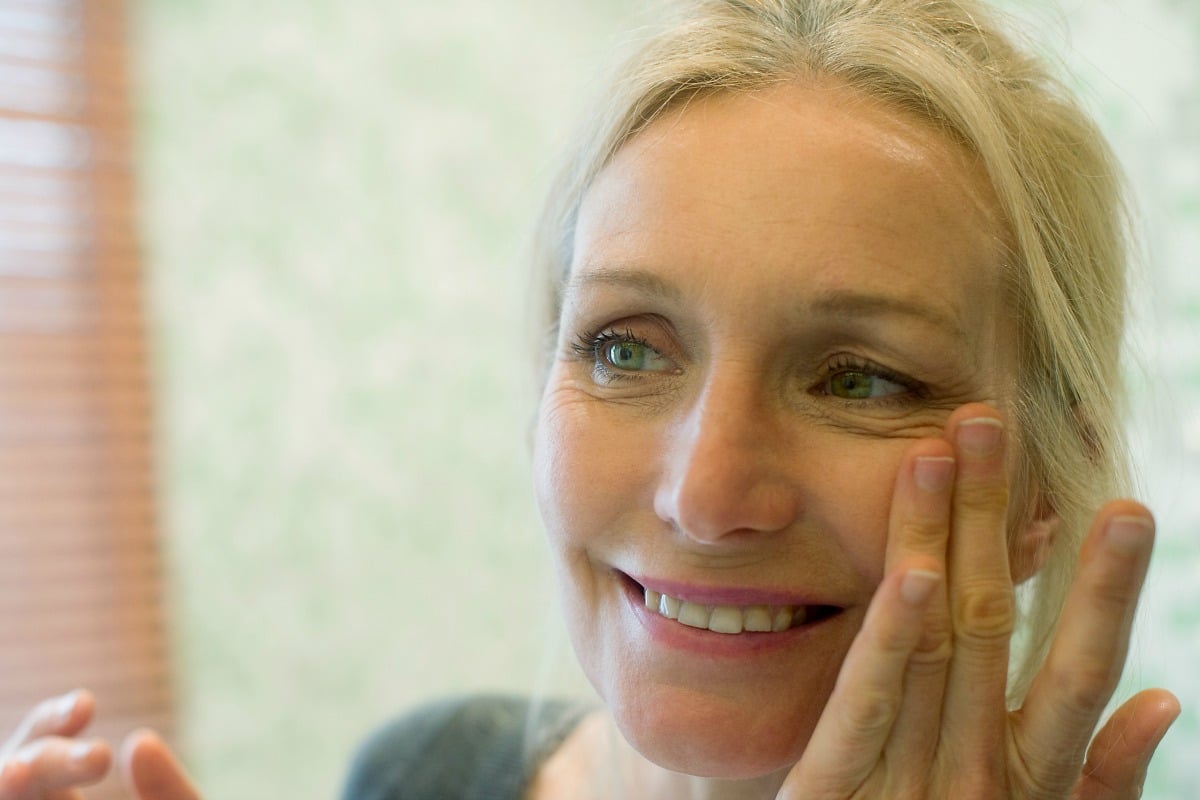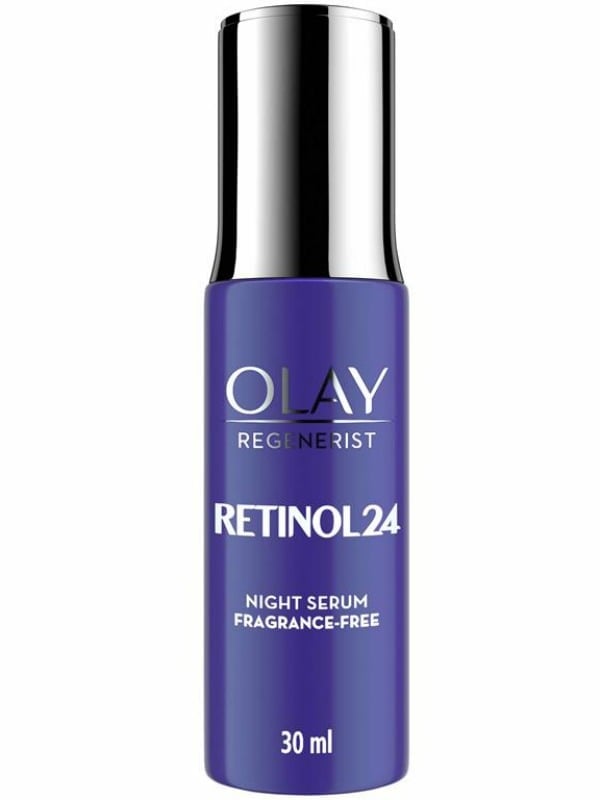
Retinol is one of those skincare ingredients that sounds 11/10 scary, which might be why you've put off using it in your skincare routine. But guys, it's not actually all that bad. It's actually very very good. And we don't want to jinx it - but we reckon you could be great mates.
To help you become acquainted with one another, we're going to give you a rundown on everything you need to know about this powerhouse anti-aging ingredient.
Let's go!
Listen to Mamamia's podcast for your face, You Beauty, where host Leigh Campbell reveals the product that makes eye bags disappear. Post continues below.
What is retinol?
*Puts on lab coat*. Retinol is a form of vitamin A and is a powerful anti-aging ingredient that works to promote skin cell regeneration and increase collagen production - the side effects of this rude thing called 'ageing'.
In the words of an *actual* skin professional, "Retinol is the gold-standard of all skin care ingredients."
"It improves the luminosity of the skin by accelerating the skin-renewal process and enhancing the collagen production (which starts to decline in your 30s)," explained skin practitioner Sarah Hudson from Skin By Sarah Hudson.
So, how does it work? Well, according to Dr Giulia D'Anna from Dermal Distinction, "When applied to the skin retinol helps to break up the dead skin cells sitting on the surface, gently breaking apart the 'glue' or bonds that hold the skin together."

_1597990646098.jpg?width=656)

Top Comments